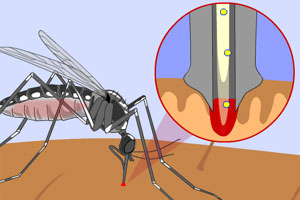RCA News


RCA News
View
| Combating against Dengue Fever in RCA Region becomes Impending Issue WHO is Working Closely with Member States to Control the Outbreak Radioisotope Molecular Techniques can Contribute to this Endeavor | |||
|---|---|---|---|
|
Name
admin |
Date
2005.03.15 |
Views
3435 |
|

WHO said in a recently updated report that for example in Indonesia, from January 1 to 3 March of this year, a total of 23,857 persons were hospitalized by suspected dengue cases including 367 deaths. It is said that the health authorities are carrying out tests to determine the specific virus strain responsible for this outbreak. The local health authorities are conducting intensive vector control activities including larviciding, space spraying and sensitizing the community on how to protect themselves and the actions they can take to prevent the mosquitoes from breeding on and around their homes.
Dengue is widely distributed in 100 countries throughout the Americas, South-east Asia, the western Pacific islands, Africa and the Eastern Mediterranean. The viruses are transmitted via the bite of various day-feeding mosquitoes of the subgenus Stegomyia. Once infected, a mosquito remains infective for life. Infected humans circulate the virus in their blood, mosquitoes ingesting viruses when feeding on the infective individual. Humans serve as an amplifying host. Female mosquitoes can also transmit the virus transovarially, passing it down to the next generation.
Dengue is the most important tropical infectious disease after malaria, with an estimated 50 to 100 million cases of dengue fever, 500,000 cases of dengue hemorrhagic fever (DHF), and 25,000 deaths annually. The IAEA/RCA proposed project on dengue aims to apply molecular techniques to the monitoring and control of the dengue virus. Through the project, it is expected to build regional capacity in the use of radioisotope molecular techniques for dengue virus epidemiology and to monitor the prevalence and transmission of dengue virus types, subtypes and recombinants in the region thus to contribute combating the dengue disease.
Attachments



